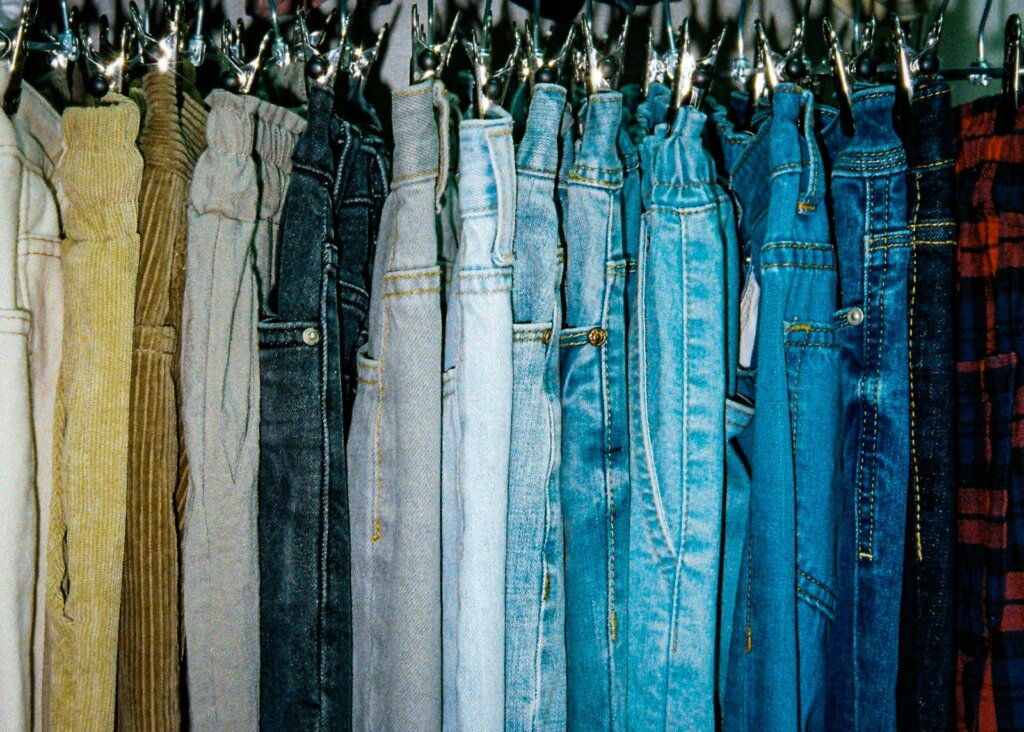I keep thinking about a poem/quote I read from Dr. Clarissa Pinkola Estés that I’ll share an excerpt of:
“We do not become healers.
We came as healers.
We are.
Some of us are still catching up to what we are.
We do not become storytellers.
We came as carriers of the stories
we and our ancestors actually lived.
We are.
Some of us are still catching up to what we are.
We do not become artists.
We came as artists.
We are.
Some of us are still catching up to what we are.
We do not become writers…dancers…musicians…helpers…peacemakers.
We came as such.
We are.
Some of us are still catching up to what we are.”
Her quote/poem speaks to me because for about the past year I’ve engaged in a deep recovery and reclaiming of my artistic self. For a long time, I joked that I couldn’t write fiction to save my life. It was a joke but also, I meant it. I didn’t think I could write fiction, didn’t think of myself as creative or artistic. I had moments where I proclaimed, “I’m an artist!” and then quickly forgot those and fell back into the belief that I’m not a creative person.

Why this picture? Unclear! It came up when I searched for “reclaimed.” Maybe the wood is reclaimed. Photo by Chris Lorensson on Unsplash
That might sound strange considering I wrote a novel but in my mind, the first one didn’t count because it was based so much on my real life. And this second novel, which isn’t based on my real life, has been a struggle, let me tell you. I fight against the belief that I can’t write it pretty much every day. In part, the struggle is because I have a perception that I’m not a storyteller, that I’m a journalist who tells stories about real life and real people but can’t create imaginary worlds. But is that really true?
The other week I found a modern retelling of “Little Red Riding Hood” that I wrote when I was probably 10. The text is in calligraphy and the pictures were also drawn by me. There is literal evidence to show I’ve always been a storyteller. As Estés says, I didn’t become a storyteller, I came as a carrier of the stories I and my ancestors actually lived. This is true in more ways than one. I’m VERY attuned to intergenerational trauma and collected my ancestors’ stories, both good and bad. I’m the family historian because stories matter to me. I am a storyteller and storykeeper.
I am reclaiming the identity of storyteller and catching up to what I am, to what I already came here imbued with. I wish it could be a “one and done” sort of thing but for me, it hasn’t worked like that. It’s been a daily process of remembering and reclaiming my artistic self.
This post is about me but I’m sharing it because I wonder if there’s a part of you that’s been long buried that it’s time to resurrect. What has stayed hidden for too long that wants to see the light of day? What do you want to reclaim, recover, or remember? I bet it’s something powerful and important.
I dream of a world where we recognize some things we don’t become, some things we already are. A world where we understand we came into the world with certain gifts and sometimes we need to retrieve those gifts. A world where we let go of identities that no longer serve us and reclaim who we truly are.
Another world is not only possible, it’s probable.
A friend asked me an audacious (in a good way) question: “What if you only said yes to things that were a heck yes instead of settling for things that are mediocre?” My friend isn’t referring to every situation because to be an adult means sometimes you have to do things you don’t want to do. Will I ever say “heck yes” to washing dishes or filing my taxes? Personally, I will not but I still wash dishes and file taxes. But other things? The way I spend my time? The people I hang out with? The dreams I have? It’s a good question.
My friend asked this because right now I do a lot of settling. I frequently say, “It’s fine,” or “This is good enough,” because I don’t believe what I want exists. Here is a small, but telling example. I have about a billion pairs of pants that all sort of fit. Maybe the length is fine but the hips are too wide. Or the hips fit well but the waist is too big. Why do I buy these pants? I settle for them because I don’t think I can have what I want. Lest you say, “You can custom-make pants,” I did! And even those don’t fit quite right! I gave up because it was too much of a hassle/expensive to get tailor-made pants retailored. But this is precisely the issue. At some point, I give up.
Pants are one thing but dreams are another. I keep saying I want to be a novelist but then I spend my time applying for jobs I don’t actually want or paralyzed with self-doubt about my writing abilities. The refrain is, “I can’t do it! Novel writing is too hard! I’m bad at this!” But here’s the thing – the Divine Beloved placed this dream in my heart because I have a novel idea that wants to be birthed in the world, ideally through me. By applying for full-time writing jobs that I don’t want and don’t have the energy to do, I’m settling for a half-life where I’m bumbling around too scared to pursue what I really want, which is to make a living as a creative person.
My breakthrough, at the moment anyway, is to say, “Forget that! I’m writing a novel and it may be bad in the beginning but that’s what revision is for!” If I say I want to be a novelist, I have to actually write a novel. If I say I want a romantic partner I have to stop wasting my time with people I’m not actually interested in. Everything I want in life requires me to not settle, to not say mediocre is acceptable.
In my spiritual tradition, we say there are six secrets to success and the very first secret is firm determination or saḿkalpa. Some people interpret saḿkalpa as “intention” but that’s not how we interpret it. My teacher says, “This firm determination is the secret of success in each and every human life. Where there is no firm determination, one will never be successful in any arena of human life.”
He says that because without firm determination, you’ll do what I do and buy pants after pants that don’t really fit. Or you’ll live somewhere you don’t like because you’re scared nothing better will come along. Or you date someone because no one else is showing interest in you. Firm determination means saying, “I must do it! I must ____! There isn’t another option.” That’s not to say what you desire will come quickly, or at all if it’s not in your best interest, but if your will and the Cosmic will line up, you’re sure to be successful if you keep your eye on the goal.
I dream of a world where we focus our attention on what we really want. A world where we recognize the first factor for success in any endeavor is firm determination. A world where we understand the power of saying, “I must be successful” and we aren’t distracted along the way. A world where we stop settling for what’s merely fine.
Another world is not only possible, it’s probable.
Artificial intelligence (AI) has been on my mind because as you’re likely aware, the Lensa AI app that creates “magic avatars,” or in other words digital art, went viral and jumped to number one in the Apple App store recently. Not only that, ChatGPT gained more than a million users in five days around the same time. The AI program can create A+ academic papers and Netflix-worthy scripts.
It’s both exciting and terrifying. Terrifying because as a writer and an artist I’m starting to wonder, “Will I be obsolete soon?” And sure, AI could save me a lot of time and replace the boring writing I don’t want to do anyway such as “compare and contrast the best-selling fertilizers currently on the market,” but still. When I think about AI, my stomach clenches and my whole body gets tense. If AI can do what I do, only better in some instances, what does that mean for me?
The first, obvious answer is I’m so much more than what I do. I’m not only a writer. I’m a daughter, a sister, a friend, etc. The relationships I have with people matter, a machine cannot yet replace my presence, but also the essence of who I am matters. Regardless of whether I never write another word again, I have existential value. My spiritual teacher says over and over again, “Nobody is unimportant, nobody is insignificant. Each and every existence is valuable.” So there’s that.

Humans and robots. More to come. Photo by Andy Kelly on Unsplash
But there’s also a more intangible something I bring. Cosmic consciousness, Brahma, Source, whatever name you have for it, is coming to know itself through me. I am in partnership with the divine to create something new. AI by its very nature is derivative. You literally have to feed AI loads and loads of information for it to “learn.” AI pulls from what’s already in existence and that is one of the criticisms of Lensa AI – it sampled from human artists without acknowledging or paying them for their work.
As a human being, I can create something new. I can be a conduit for the divine. Indeed, my spiritual teacher says artists are pioneers. They are at the vanguard of society, leading them toward “true fulfillment and welfare by providing the inspiration for service.” Art is not just about showcasing what’s inside my own head, but a way to spur people forward, to inspire, to encourage, and to hopefully put people in touch with something greater than themselves.
Another quote for you: Artists “have to cleanse all that is turbid, all that is inauspicious in individual life in the holy waters of their universal mentality, and then convey it sweetly and gracefully into the heart of humanity. Herein lies the fulfillment of their service, the consummation of their practice.”
How can AI possibly convey a universal mentality sweetly and gracefully into the heart of humanity? How can AI talk about the touch of the eternal and hint at something that lies beyond the mind when it’s not something to comprehend but rather feel and experience? It can’t. Not unless it copies a human being and therein, once again, my value is evident.
I dream of a world where we understand even if we’re all out of work, we still matter. A world where we recognize while AI is better than humans at some things, it’s not better at everything. A world where we hold true to the understanding there is still value in being human, no matter how much AI advances.
Another world is not only possible, it’s probable.
I’m working on a novel about a 32-year-old woman who is deeply insecure but tries to mask it with false bravado. She second-guesses every move but tries to hype herself up by saying, “Go me!” and “I got this,” nearly every chance she gets. When I show small snippets of the novel to a writing group consisting primarily of women around my age, the feedback is positive. They’ve told me it’s highly relatable, either for themselves or because it reminds them of their friends. One woman commented this is the sort of book she’d stay up late reading.
However, when I show small snippets of the novel to a writing group consisting primarily of women around 30 years older than me, the feedback is negative. They compliment the writing itself and praise my strong voice, but hate the character. They say she’s self-indulgent and unlikeable. Same character, different audience.
The novel is very much a work in progress. I haven’t even completed the first draft so I’ll change 10,000 things from now and when I deem it ready for the world so who knows how people will respond at that point? Yet, regardless of the changes I make, the experience reminds me you can’t please everyone all the time and it’s not worth it to try. What strikes a chord with one person will be disharmonious to another. Also, depending on the age and stage of life, the same person will no longer like the thing they once enjoyed!
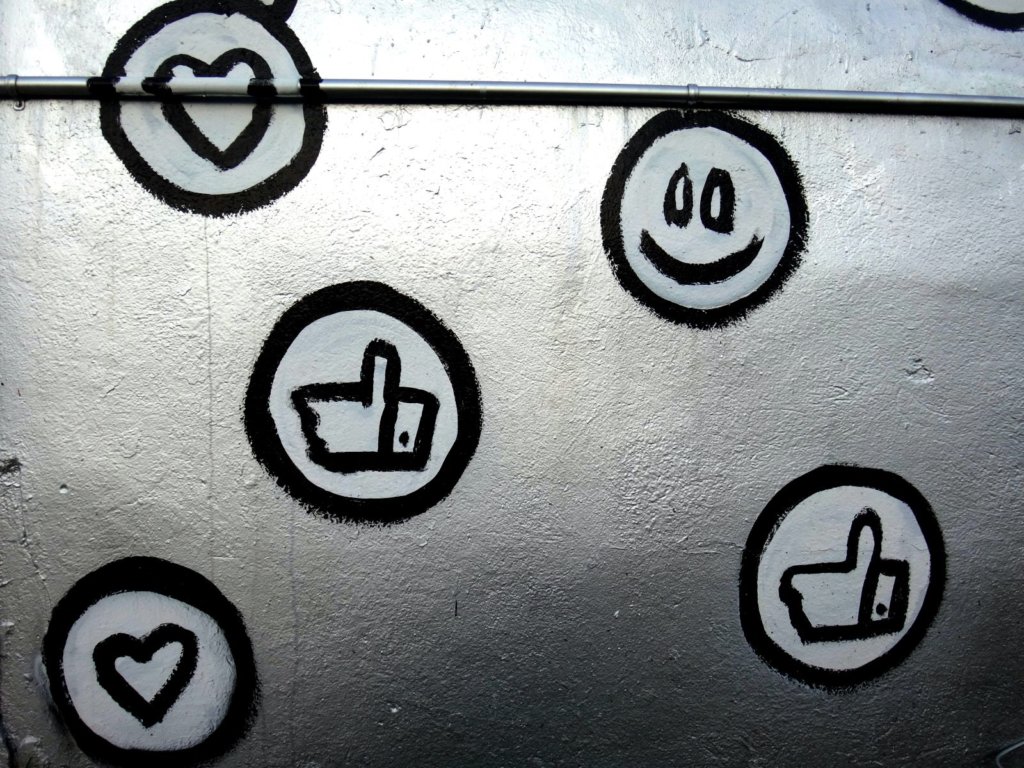
Likes come and go. Photo by George Pagan III on Unsplash
This happened to me on Saturday night. I went to San Francisco for a play and walked just two blocks from where I used to live near Union Square. It’s a neighborhood filled with hustle and bustle. There are about a million people milling about. Cars are honking, people are chatting, and restaurants are buzzing. When I was 23, I loved Union Square. I wanted to be in the thick of things. My feeling was, “Take me to where the action is!” But now at 38, I don’t want to be where the action is. I want the antithesis of Union Square: a house with a yard on a quiet street.
A friend asked me if there’s anything I miss about living there and I do. I miss the public transportation. I could catch numerous buses and multiple train lines easily whereas now my options are more limited. I miss that part but nothing else. I have zero desire to live in Union Square again but for me at 23, it was a dream come true. People change and their tastes change. Because of that, it’s impossible to please everyone. In marketing, they say if you try to appeal to everyone, you’ll appeal to no one. That’s because your product will become so diluted and bland, no one will be interested.
This principle of “you can’t please everyone” doesn’t only apply to art and commerce. It also applies to life. At this time of year, people are pulled in many different directions. They feel pressured to go to all of the holiday parties, visit their families for 10 days, buy gifts for everyone on their list. They get stretched too thin because they’re worried about displeasing their boss, their family, their friends. But here’s the thing: Someone will always be displeased. It’s just not possible to be everything to everyone and if you try, you’ll wind up burned out and resentful.
The more I recognize someone, or rather many someones, won’t like me, my art, my blog, my behavior, or heck, the way I style my hair, the better off I am because it’s inevitable. It’s not bad or wrong, it’s just a fact of life. It’s probably for this reason you’ve seen the overused quote wrongly attributed to Oscar Wilde that says, “Be yourself. Everyone else is already taken.”
I dream of a world where we remember people like different things. A world where we understand not only do other people have varied tastes, but our tastes change too. A world where we recognize it’s more important to take care of ourselves than to engage in people pleasing. A world where we remember we won’t be able to please everyone.
Another world is not only possible, it’s probable.
I enrolled in a novel writing class and I confessed to a fellow writer that I feel a lot of pressure to put into practice everything I’m learning. I want my dialogue to conceal and reveal. I want to keep the reader guessing but not withhold too much. I want the plot to be engaging while also emotionally stirring. And I want to do all that perfectly in the first draft.
There aren’t many areas of my life where perfectionism continues to show up, but this is one of them. I care so much about the heroine’s journey novel I’m writing and that means I want to do this story justice. I want it to be the best book it can possibly be and so, hello perfectionism. When I shared this angst with my friend she said to me, “Give yourself the grace of being a newcomer,” and it felt like rubbing aloe vera on a sunburn.
Ahhhhh. Grace. Yes. I know people talk about writing terrible first drafts and understanding that’s a part of the process, but characterizing a draft as “terrible” is a judgment. There’s space for perfectionism because if you know a draft is terrible, that means there’s a certain standard you have for the draft that it’s currently not meeting. When I say to myself, “This draft is awful. God, I can’t believe I wrote this,” I’m judging my efforts and not giving myself grace.
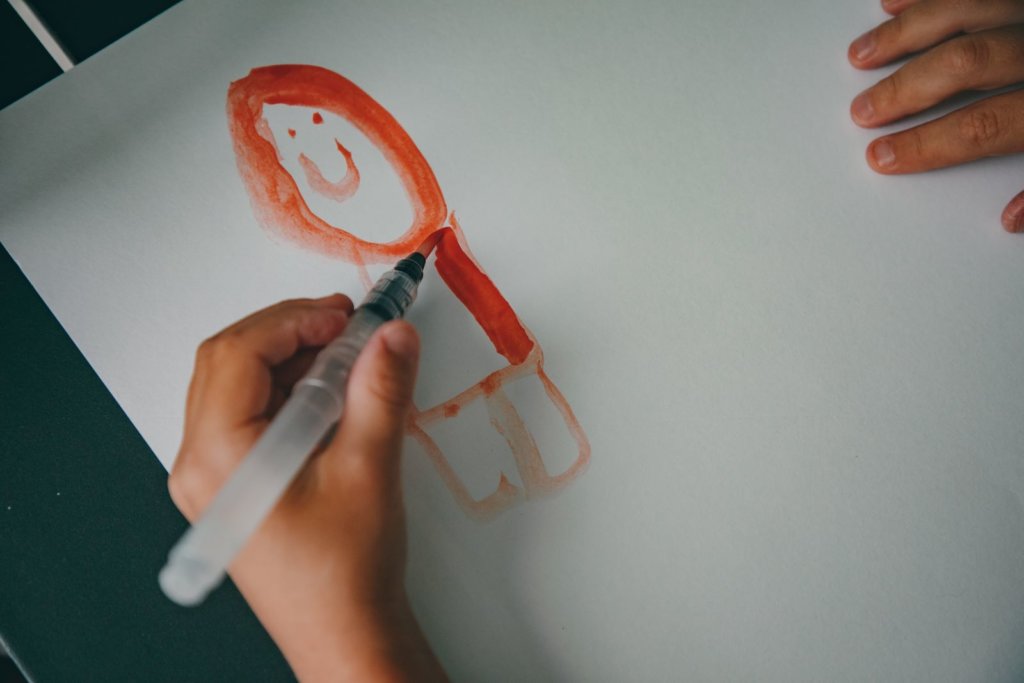
What if I let myself learn like a child? Photo by Anima Visual on Unsplash
I’ve never taken a creative writing class before. I know nothing about novel writing. I didn’t get an MFA; I got a bachelor’s in journalism. Ask me to write an anecdotal lead and I can bang one out in a jiffy. Ask me to write a novel and I’m stumped. In other words, novel writing is completely new to me and by holding myself to a high standard, I’m stifling creativity. I’m not letting myself play around. I’m not extending compassion and forgiveness toward myself. In other words, I’m not treating myself like I treat other beginners.
When my young nieces and nephews draw me a picture, I don’t say, “This is terrible. The head is three times larger than the rest of the body.” No, I exclaim in delight and say, “Wow! Look at that!” because they’re young and they’re just learning how to draw. I want to encourage them to keep going because they enjoy it. I don’t have expectations my nieces and nephews will be famous visual artists by the age of 8. I’m letting them be kids. However, I don’t do that with adults, either myself or others. As adults, there’s an expectation that we are at least competent with whatever we’re doing. That means not sucking at surfing, or not playing the piano without striking the wrong key, regardless of how long we’ve taken lessons.
Psychiatrist Dr. Gail Saltz says, “Culture is consumed with being an expert.” In fact, average levels of social perfectionism rose by about a third from 1989 to 2016 in a study of 41,000 college students. Is that number higher now? Probably.
We’re not giving ourselves the grace of being a newcomer. Even in the numerous articles I read on this topic, the writers said, “Let yourself fail,” or had titles with, “The case for being bad at something.” One even mentioned you’ll start off sucking but eventually, you’ll get better at crocheting or whatever your activity is. How about if we changed that narrative?
What if instead of proclaiming something we’re doing is good or bad, excellent or terrible, we let ourselves just be? What if we treated ourselves like small children, encouraging ourselves to keep learning and growing without judging the outcomes? I’d likely enjoy what I’m doing more. Maybe you would too.
I dream of a world where we approach new skills and hobbies with an open mind. A world where we leave judgment out of the equation as we learn something new. A world where we stop expecting we’ll be an expert at whatever we try. A world where we give ourselves the grace of being a newcomer.
Another world is not only possible, it’s probable.
I am very attached to the fruits of my creative labors. I want my blogposts to become viral. I want the book I write to hit bestseller lists. I have very specific ideas about the trajectory of my creative efforts and boy do I get irritated when my ideas don’t match up with reality. It’s tough being an artist y’all. My ego can get in the way and when that happens, I have to remind myself what it means to be an artist.
As I’ve written before, my role as an artist is to establish a link between the finite and infinite, the mundane and the transcendental. In terms of creativity, it means I’m working with something more than myself because I am an instrument for my higher power. I am here to be of service to others through the art I create.
Talk to any artist and they’ll tell you at some time or another it felt like they were channeling something, that something moved through them. Indeed, Elizabeth Gilbert has a mega-popular video on creativity saying exactly that. If that’s true, and I believe it is, it means I’m an instrument for my higher power. I’m the violin, not the violinist. From that perspective, I’m not in control of the music the violinist plays, nor am I in control of how well the music is received. Or in my case, how well the writing is received.
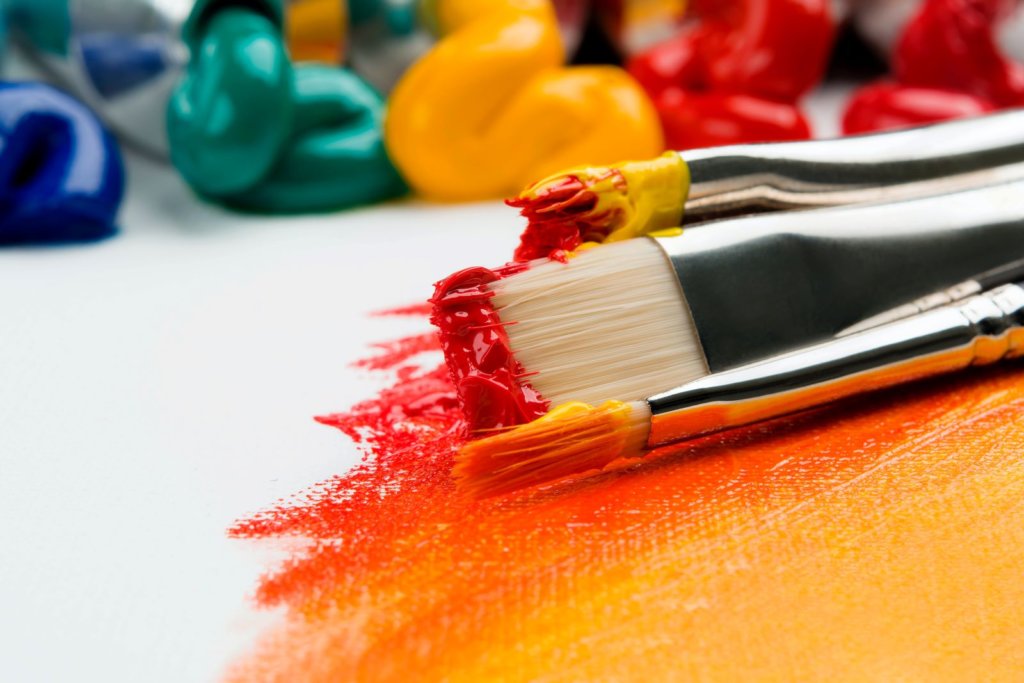
Each creative project has its own life. Photo by Anna Kolosyuk on Unsplash
I don’t know why certain things are popular and others languish in obscurity, but also, I don’t know the mind of God. However, I’ve experienced enough synchronicity in my life to know I am a piece on God’s chessboard, that there is a greater intelligence at work. That means art too. I want to write a wildly popular book that lands me on the New York Times bestseller list, but maybe every book has its own purpose and trajectory, and sometimes that means only six people will read it.
Last year at this time I sent a romantic comedy novel to every literary agent I could find. When sending query letters didn’t work, I asked my sister to coach me on pitching to literary agents live. Because my pitches went so well, I thought for sure somebody would sign me. They didn’t.
After getting rejected by every single literary agent, I finally stopped and asked, “What was the purpose of this book?” I don’t think the romantic comedy will ever see the light of day because it’s not supposed to be published, at least not in its current form. That book served its purpose because it demonstrated I can write a full-length novel, something I didn’t think I was capable of, and it also taught me a lot. For instance, it showed me I don’t actually know what I’m doing when it comes to writing a novel, but I’d like to. I want to know how to structure a novel, what makes a scene work, what doesn’t, etc. Writing the romantic comedy helped me see I need to work on my craft. So I am. I enrolled in a UC Berkeley extension course called “Developing the Novel.”
It’s only when I remind myself not every book is meant to be a bestseller, that every thing I create has its own trajectory, that I feel at peace. Every book, every piece of art, has its own “life” to lead. What I’m creating does serve a purpose. It just may not be the one that I think initially.
I dream of a world where we realize we are not solely responsible for our creative successes or failures. A world where we recognize we are instruments for something greater than ourselves. A world where we take our egos out of the equation. A world where we understand every creative project has its own life to lead and we let creative pursuits be what they are.
Another world is not only possible, it’s probable.
Sometimes I think the expression, “Don’t just do something, sit there,” was made for me. I’m not prone to inertia and people often describe me as “tenacious” and “hard-working.” That’s true, and it means I have trouble with the reverse: giving up.
I don’t know when to let go, not only of people and relationships, but also situations. It’s confusing because the message society sends over and over again is, “Don’t give up! Keep going!” Except, that’s not working for me. To give a small example, I’ve queried 55 literary agents since February 2020 for a romantic comedy I wrote and thus far, every single one of them has said, “No.” I’m still waiting to hear back from three agents, but I don’t feel all that hopeful. At the moment, I don’t have the energy to keep pursuing an agent for this book.
Instead of telling me, “Try harder!” my therapist recommended I take a break and let myself feel what arises when I do so, which is disappointment. He says it’s important for all human beings to deal with disappointment, to cry, and not keep trying to “fix” whatever is causing the disappointment. After shedding those tears, then perhaps there will be a new energy, a brainstorm for approaching the issue differently. Regardless, compulsive trying only results in frustration for me. That makes sense when you consider the five Buddha families, also called the five wisdom energies, which are Buddha, Vajra, Ratna, Padma, and Karma.
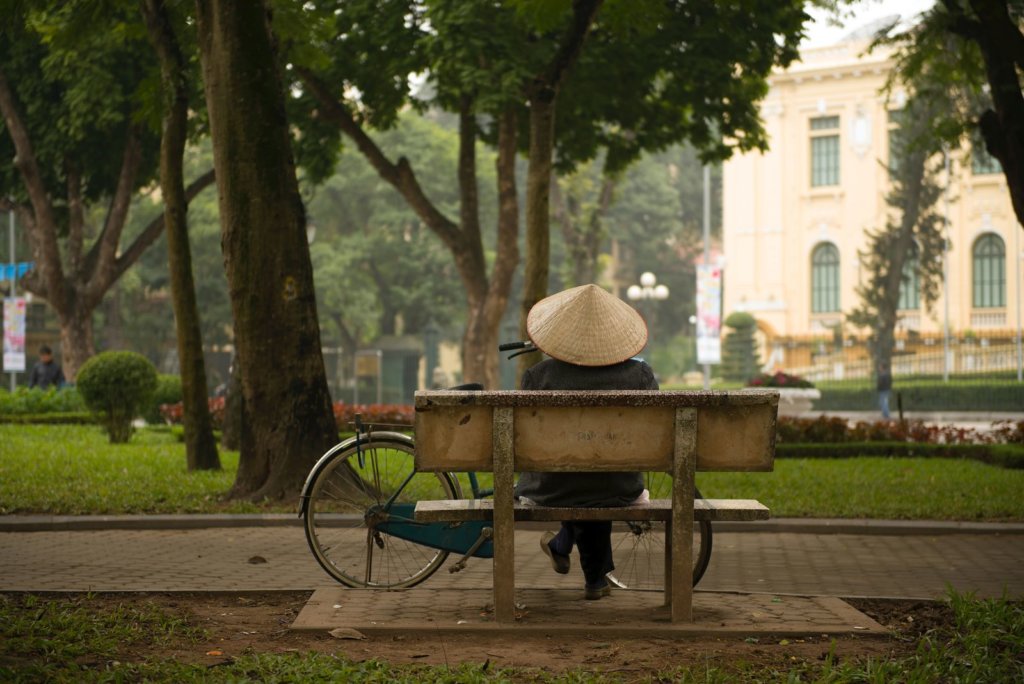
There’s power in pausing. Photo by Lukasz Saczek on Unsplash
Each person has a predominant Buddha family with strengths and weaknesses. For instance, Vajra family people have an aptitude for mental clarity and the ability to correct any distortions. They are scientific, logical. But when they are encumbered, when their energy is bound up, they can become angry, judgmental, and critical.
All of the Buddha families speak to me, but the one I align with the most is the Karma family. Karma family people are hard-workers, they know how to get things done. When their energy is encumbered, they become envious, comparing themselves with others and finding themselves lacking. (Did you laugh upon hearing that? I know I did because the description is so apt.) The meditation for a Karma family person is to be in the flow, to think about the wind picking up a sail so that it moves with ease, not force. In other words, the practice for people like me is to take inspired action, not compulsive action.
I’ll admit, that’s so freaking hard because my compulsive doer is strong, but taking inspired action seems to be the message I’m receiving over and over again. The universe seems to keep telling me, “Pause, my dear. Just pause.” This is also in alignment with my spiritual philosophy because my teacher says, “[M]ovement through speed and pause is an essential factor for each and every animate or inanimate object. Wherever there is existential factor there must be this pulsation. An entity acquires strength and stamina during the pause phase, and emanates vibration during the speed period. There cannot, however, be any absolute speed or absolute pause in the created world.”
In other words, I’m paused now but it won’t be permanent. I just have to wait for wind in my sails.
I dream of a world where we recognize the power of pause. A world where we understand constantly doing all the time is a recipe for burnout. A world where we learn to take inspired action and until that inspiration strikes, we rest easy, knowing our time will come.
Another world is not only possible, it’s probable.
Right now I’m participating in NaNoWriMo (National Novel Writing Month), which means I’m aiming to write 50,000 words in a month. For the uninitiated, that’s a novel the length of The Great Gatsby. It’s approximately 75 pages single spaced in a word processing document. I’m pretty sure this new novel I’m working on is the worst piece of writing in the known universe, but I’m pressing forward.
The advice for those writing during NaNoWriMo is to tame your inner editor. Instead of hitting the “delete” key when you think something sounds awful, just keep putting words on the page. Let the writing be bad. There’s something liberating in indulging in that mentality. To revel in it. To acknowledge, “I know this can be said better but I don’t care.”
As someone with a history of perfectionism, it’s difficult for me to stop judging end results, but that’s what I’m encouraging myself to do right now. I’m acknowledging the new novel is bad, that it will likely change a lot before I’m finished, but I’m letting that be OK. I’m not nitpicking myself in the moment and instead giving myself freedom to relax, to explore, to try new things on the page. It’s fun!

Some things will cause you to shake your head they’re so bad. Photo by Kyle Glenn on Unsplash
I notice this principle, “Let it be terrible,” applies not only to creative projects, but also to the physical body (sometimes). Headline, I’m fine, but on Saturday night I was in a car accident. While driving through an intersection, a car ran a red light and hit the driver’s side of my friend’s car. We swerved to the right and the impact jostled me so I banged up my elbow and knees against the console very, very minorly. It’s my right shoulder blade that hurts this morning from the whiplash.
I took out a tennis ball and massaged the shoulder blade but it still hurts. I don’t think anything is dislocated; it just hurts. Because I was in a car accident. And instead of rushing to fix it, change it, solve it, I said to the pain, “I’m here. I’m listening, body.” I’m letting the pain be here, I’m letting things be terrible because sometimes that’s all we can do. The body heals on its own timeframe and that doesn’t necessarily mean something is wrong.
It reminds me of this NY Times article I read a few years ago where an American woman had a hysterectomy in Germany. When she asked about painkillers post-surgery, her medical team said she’d be given ibuprofen and that’s it. When she talked to one of her doctors about it, he said, “Pain is a part of life. We cannot eliminate it nor do we want to. The pain will guide you. You will know when to rest more; you will know when you are healing. If I give you Vicodin, you will no longer feel the pain, yes, but you will no longer know what your body is telling you. You might overexert yourself because you are no longer feeling the pain signals. All you need is rest.”
It confounded her, but it turned out her doctors were right. She didn’t need painkillers – she needed rest and patience. She let things be terrible, she let her body feel terrible, and that was her wisest course of action. For this month I, too, am letting things be terrible in more ways than I anticipated, and that perhaps is a greater accomplishment than writing the worst novel the world has ever seen in the course of 30 days.
I dream of a world where we let things be terrible sometimes. A world where we let our creativity flow without any hindrance. A world where we check our self-editors at the door. A world where we let ourselves feel pain when it arises because it provides us with important information to guide our lives and direct our attention.
Another world is not only possible, it’s probable.
I keep seeing suns everywhere — as a ceramic decoration on the side of a house, on cartoons, cards, etc. The sun is “talking” to me, which makes sense because I keep thinking about shining. What does it mean to shine? Where and how do I shine? Where and how do other people shine? Can I boost my shininess?
There are multiple definitions of “shine.” One of them is to emit rays of light, to give light. Another is to be eminent, conspicuous, or distinguished. I like to think of personal shining as emitting metaphorical rays of light in a conspicuous way. It’s the process of showering the self upon the world; much like the sun does for Earth. There’s a method for figuring out when and how we each shine. An Instagram post by Astrology with Andy said astrologically speaking, “The sign your sun is in [signifies] traits you identify with and/or are important to you. The house your sun is in [denotes] the area(s) of life where your sun sign’s qualities can best, and most easily, shine. The aspects your sun makes to other planets [shows] how to help your sun shine (and possible pitfalls that can dim its light).”
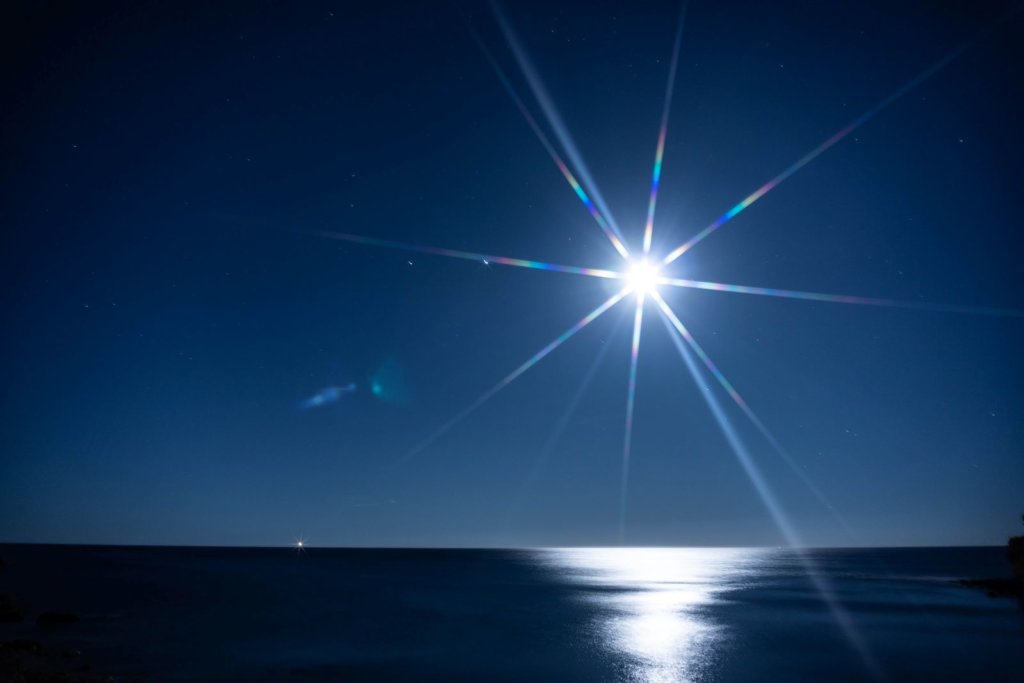
I want to shine brightly. Photo by Benjamin Patin on Unsplash
As for me, my sun is in Sagittarius, sits in the 11th house, and conjuncts Uranus. Qualities associated with Sagittarius (and thus ones I value) are optimism, knowledge, and broadmindedness. The 11th house is the one of friends, community, groups, etc. so I shine in groups of people. It’s no surprise that while I get nervous speaking in public, I also love it. And because my sun is conjunct Uranus (a planet that has rabble-rouser/innovator energy), I shine specifically by either standing out as a vanguard, and/or in unusual communities such as 12-step groups or a fringe spiritual organization, for instance. I’m laughing and shaking my head because that’s exactly true and once again points toward the merits of astrology. Anyone who thinks it’s b.s. just doesn’t know any better.
Being aware of all this has me wondering two things — 1.) How can I activate my shininess more? And 2.) Is what I want even possible? Is it even in the cards for me to be a bestselling author? My astrological chart essentially says, “You have an intense desire to be renowned, it’s important for your self-esteem, buuuuuuut you have to work incredibly hard to achieve that.” Astrology isn’t everything — the Divine beloved is more powerful than astrology and can make anything happen, but still. I’m not feeling all that hopeful or optimistic, and as mentioned earlier, those are traits I prize.
AND instead of falling into a pit of despair, which frankly feels tempting, I’m reminded of a concept in many spiritual philosophies, including mine: “You have the right to action but not to the fruits of the actions.” My spiritual teacher says, “Wherever there is an action, there is a corresponding reaction because every action gets either reflected or refracted. The wave produced by the action will be either reflected or refracted. Both reflection and refraction are reactions. So whenever you act, whatever the nature of that work, that is the kind of reflection or refraction it will produce. But that reflected or refracted reaction is not in your hands. To do whatever you do, that is your only right.”
To do whatever I do is my only right. How it will be received, who will read it, how popular I’ll become as a result, etc. is out of my hands and not up to me. All I can do is what I’m doing and in this case that means putting words on a page.
I dream of a world where we recognize our own unique talents and gifts. A world where we shine those gifts upon the world. A world where we understand that as much as we want to control outcomes, we cannot. A world where we realize all we can do is put in the work and let go of the rest.
Another world is not only possible, it’s probable.
The other week I turned in an essay for a competition and I felt vaguely guilty about it because none of the ideas were mine. Don’t get me wrong, I didn’t pass the ideas off as mine – I cited all my sources and I put quote marks around passages that someone else had written – but still. I felt like a plagiarist because I couldn’t take ownership for what I was presenting. I didn’t write about my personal experience; I wrote about ideas.
When I mentioned this to a friend, she reminded me 1.) That’s what you do in essays and 2.) There’s that saying, “There’s no such thing as an original idea. Every idea worth having has been had thousands of times already.”
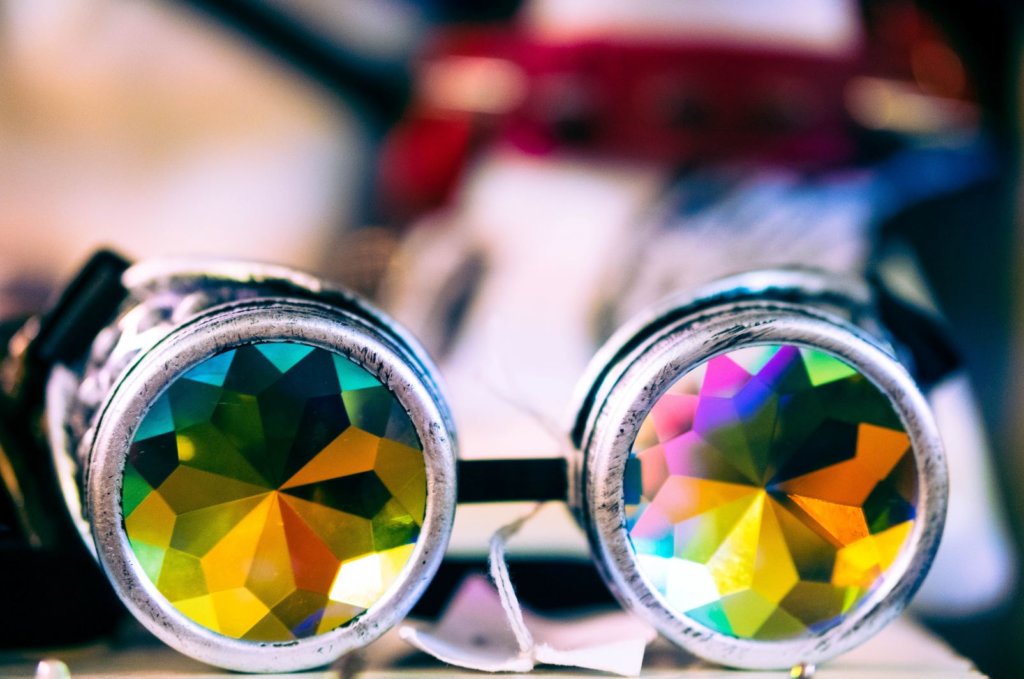
Photo by Malcolm Lightbody on Unsplash
I’m not sure I fully agree with the quote because some ideas are truly original. After all, somebody had to experiment with putting together peanut butter, pickles, and sriracha sauce to learn it’s a great combo. And at the same time, I know we’re all putting our own spin on things. It reminds me of this quote by Mark Twain who said:
“There is no such thing as a new idea. It is impossible. We simply take a lot of old ideas and put them into a sort of mental kaleidoscope. We give them a turn and they make new and curious combinations. We keep on turning and making new combinations indefinitely; but they are the same old pieces of colored glass that have been in use through all the ages.”
We’re all using the same pieces of colored glass but forming new combinations with them. That’s also in alignment with my spiritual philosophy. We say (metaphorically) God is like the moon and each of us are like mirrors, reflecting the moon. We all have the same original image, but how it shows up on each mirror is different. Some mirrors are speckled or cracked. Some mirrors are cloudy or clear. The originality, the origin, if you will, is the moon, but the way the moon is reflected in the mirror is unique.
Going back to my essay, the ideas I chose, how I formulated them, and also my writing style were all unique. That’s what I can take ownership over. My part. The kaleidoscope. But nothing else. And truthfully, maybe I can’t even take ownership over those things. My spiritual practice is one where I try to see God in everything – me, what I’m creating, what I’m using to create, the people who see the creation, etc. It’s hard because I’m a person and want to feel like something is mine. I want to point to things and say, “I did that” or “That belongs to me.” And it’s true while also false.
The falsehood becomes evident when I start tracing back to my origins. When I ask, “Who gave me this mind? This body?” then it becomes clear who or what everything really belongs to. Where does that leave me? I’m simply a kaleidoscope, making new combinations from pieces of colored glass that aren’t mine to begin with.
I dream of a world where we acknowledge both our uniqueness and our commonality. A world where we understand what belongs to us and what doesn’t. A world where we realize we are all reflecting the same thing, but the way the reflection appears is unique. A world where we acknowledge our role as kaleidoscopes.
Another world is not only possible, it’s probable.
